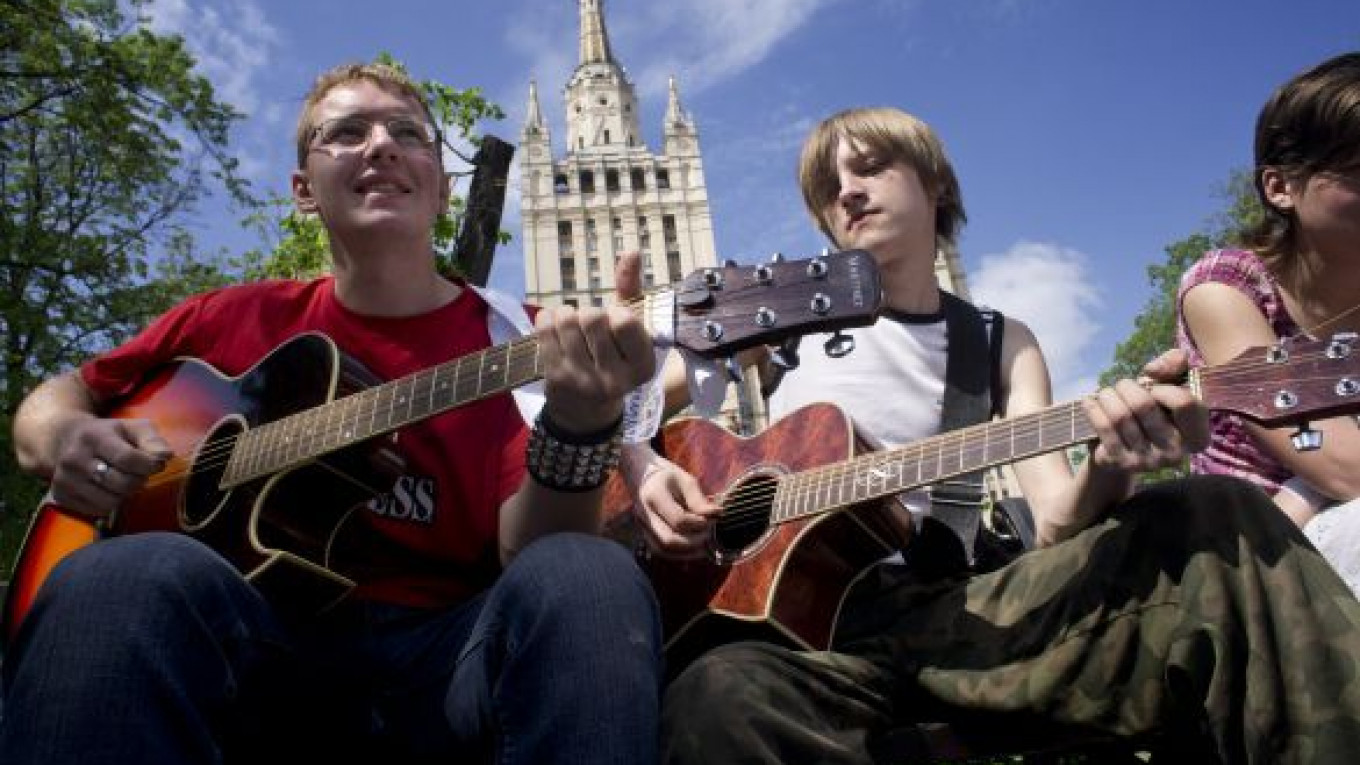Opposition protesters spent the weekend shuffling around the city trying to resist efforts by authorities to stamp out mobile opposition camps.
Police said at least 50 were arrested over the weekend, saying most of those detained were from other cities, unemployed, or homeless, Interfax reported.
But protesters have remained on the streets despite police efforts. White Paddy Wagon activist Vadim Dergachev denied reports that the protesters had been evicted from their latest stronghold on the pedestrian street Arbat, writing on Twitter that at least 150 people remained on the street Sunday morning. He later tweeted "Protest camp Occupy Arbat is alive, well and in full strength."
Protesters have been on the move since police cleared out the camp at Kudrinskaya Ploshchad overnight Friday with batons and a new wave of arrests, flushing activists from the square where they settled after the previous camp at Chistiye Prudy was broken up.
Police said the camp at Kudrinskaya Ploshchad was cleared because of complaints from residents about noise and uncleanliness. About 20 activists were arrested, but they were later released without citations, Interfax reported.
About 40 protesters moved to Nikitsky Bulvar near the ITAR-TASS building, but the area was again cleared of protesters Saturday morning with new arrests.
Remaining protesters converged on the pedestrian Arbat street, gathering near a statue of Soviet-era musician Bulat Okudzhava. Police arrived to clear the protesters later in the afternoon, arresting at least 10 people who had spread out sleeping bags around the statue without giving warnings to disperse.
Protesters remained in the area, and police resumed arrests overnight in the early hours of Sunday morning. Despite the arrests, opposition activists continued to maintain a presence in defiance of authorities.
A Message from The Moscow Times:
Dear readers,
We are facing unprecedented challenges. Russia's Prosecutor General's Office has designated The Moscow Times as an "undesirable" organization, criminalizing our work and putting our staff at risk of prosecution. This follows our earlier unjust labeling as a "foreign agent."
These actions are direct attempts to silence independent journalism in Russia. The authorities claim our work "discredits the decisions of the Russian leadership." We see things differently: we strive to provide accurate, unbiased reporting on Russia.
We, the journalists of The Moscow Times, refuse to be silenced. But to continue our work, we need your help.
Your support, no matter how small, makes a world of difference. If you can, please support us monthly starting from just $2. It's quick to set up, and every contribution makes a significant impact.
By supporting The Moscow Times, you're defending open, independent journalism in the face of repression. Thank you for standing with us.
Remind me later.






